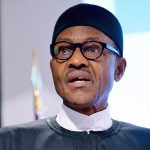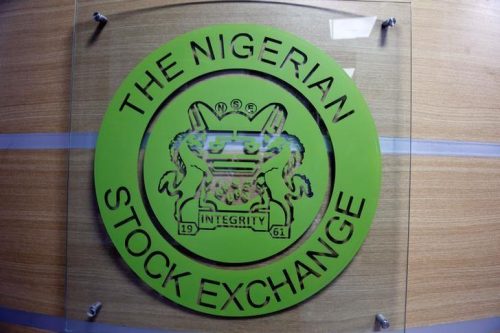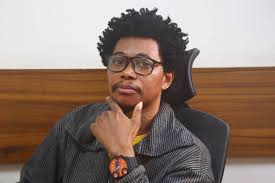End of recession elicits mixed reactions

Data released by the Nigerian Bureau of Statistics yesterday shows that Nigeria’s economy is finally out of recession. GDP growth for Q2 of 2017 was 0.55 percent, halting five quarters of negative growth. The previous two quarters had been -0.91 percent (revised) in Q1 2017 and -1.49 percent in Q2 2016.
A statement from the Office of the Vice President welcomed the news saying that the end of the recession would intensify the implementation of the Economic Recovery and Growth Plan.
“The Buhari administration welcomes news of Nigeria’s exit from recession with cautious optimism and will continue to drive Nigeria’s economic growth by vigorously implementing the Economic Recovery & Growth Plan launched earlier this year by President Muhammadu Buhari.
“The overall economic plan and direction of the administration has resulted, among others, in sustained restoration of oil production levels, (occasioned by the enhanced security and stability in the Niger Delta) sustained growth in agriculture, mining and the first growth recorded in industry as a whole in the last nine quarters since Q4 2014,” the statement read.
Mixed reactions
The news about Nigeria elicited mixed reactions. Some celebrated what they consider a laudable feat that shows that the government has finally turned the corner on revamping the economy. Bamidele Jayeola, an economist said, “The current growth rate of 0.55% is very impressive considering where we are coming from, however to maintain growth, the government should reduce the imporation of consumable goods.”
A petty trader who simply gave her name as Nonye also expressed joy at the end of the recession. “It is a relief, at least now things should start getting affordable for the poor masses.”
Nonye however had some words of caution for the government: “I think we should not place all our eggs in one sector of the economy. Also for the government to help bring it to this rate of 0.55%, I believe they should use the idea to keep up the improvement.”
Not everyone was as excited at the news however. Bukola Odufade, a business analyst said, “While this means that the economy is in recovery, it is still very fragile. I didn’t expect the recession to end this year, and looking at the numbers, I don’t think we are out of the woods yet.”
A bus driver, Rauf Adenekan, was even more scathing. “Whether it is 0.55%, I can still see no difference. The prices of everything has gone up. Like this my phone now, it used to be ₦30,000 when I first bought it, now it is ₦60,000. What kind of life is that?”
Speaking on Twitter, a user, @zeal_a went directly at the statistician general, Dr. Yemi Kale. He said that while GDP is an appropriate measure to determine falling into a recession, it is inappropriate for recovery because, according to him, the effects and causes of negative GDP eat into the economy. He ended his statement by saying that falling into an ocean may make a man drown, and that bringing him out without drying him does not mean he will survive.
A few observers also criticised the NBS’s data methodology and suggested that an data-driven look at the economy hides important nuances. Damilola Oluwayi, a pilot remarked that “the robustness of [the NBS’] data gathering tools is doubtful at best. We all know that a greater percentage of our economy is in the informal sector.
“Despite various measures to bring them into the light, a poorly educated population, combined with corrupt practices by both government and private functionaries means a lot of economic activity (legal and illegal) goes unrecorded and unrecognised. If a minister is paying for a multi-million naira house in cash, into which account does that reflect?
“The opaqueness of government practices also means that every new government had to establish probe panels to investigate the previous government’s actions. When the major drivers of economic activity cannot deliver balanced accounts for taxation purposes, how do we trust the information generated from such data?
“Finally, statistics by their nature have a way of hiding perspectives by simply generalizing the whole. It takes extra work to look at the data and identify points of variance and target them for maximum impact. The fact that a third of female students are marrying their teachers obscures the fact that the school only has three female students.”
Some respondents felt that this was too harsh. Abiola Aloba said, “In the end, Kemi Adeosun has turned this around with help from the Central Bank under the leadership of President Buhari and VP Osinbajo. I think that any critic should give them a small pat, offer advice, and not make it seem as if even 0.55% growth is a crime.”
What the end of the recession means
The exit from recession means economic activities have started to rise again, albeit slowly. Capital market activities, which are usually a good indication of a recovery. had shown growth with the stock market appreciating by over 30% so far this year. Capital importation reports from the second quarter also showed an increase in capital imported into the country, and companies that had previously put their expansion plans on hold, have started making efforts to restart them.
Concerns still remain
Despite the exit from recession, several analysts have expressed concerns that the recovery may be a weak one. Central Bank of Nigeria (CBN) Governor Godwin Emefiele on the sidelines of the last Monetary Policy Committee (MPC) meeting was of the opinion that the country’s recovery would be short lived except the government put necessary reforms in place.
Fitch, had recently revised its ratings to BB- but gave the country’s economy a negative outlook due to the recovery being largely driven by a rebound in crude oil prices and production volumes.
London based Capital Economics panned the growth in its report.
“This was a disappointing result,” Capital Economics said. “We had expected that GDP growth would rebound to about 2.0% y/y, while the consensus forecast collected by Bloomberg was growth of 1.3% y/y.”
The London based firm ended its note by revising its 2017 GDP growth forecast from 2.0% to 1.2% saying: “Stronger growth in the second half of the year is unlikely to fully counter-balance the very poor performance in Q1 and Q2. Growth will still probably pick up to around 3.0% in 2018.”
A UK-based financial analyst, Sijuade Salami said, “Coming out of recession basically just means things have stopped getting worse. It doesn’t mean things are now better. Recession is effectively seeing your monthly salary drop from each month to the next from ₦100k to ₦98k to ₦95k to ₦90k and continuing to slide.
“Coming out of recession is when that monthly slide stops and finally your salary goes up from ₦80k to ₦81k. During all of that period, you’ve probably been digging deep into your savings to make ends meet.
“Even though your savings are now up from ₦80k to ₦81k, you can’t say you’ve recovered because when the recession started, you were earning ₦100k a month and had ₦1m in your account, but now you’re earning ₦81k a month with ₦500k in your account. The first level of ‘recovery’ is when your salary is back to ₦100k a month. Another level of recovery is when you have ₦1m in your account again. A further level of recovery is when your savings grows to what it should be now if the recession never happened.
“When Nigeria hits these different levels of recovery, people could start to celebrate.
“But there are other factors of recovery worth keeping an eye on. When you combine all the incomes of everyone in Nigeria, you might say as a whole, the country has recovered. But who are the winners and losers? Not everyone recovered the same way. Those who lost their jobs and haven’t got a new one can’t join in celebrating recovery.”
What the new numbers highlight for a cross section of Nigerians is that, despite their varying viewpoints on how to interpret the data sheet, everyone is in broad agreement that one thing we should not be doing is popping open a bottle of champagne.










